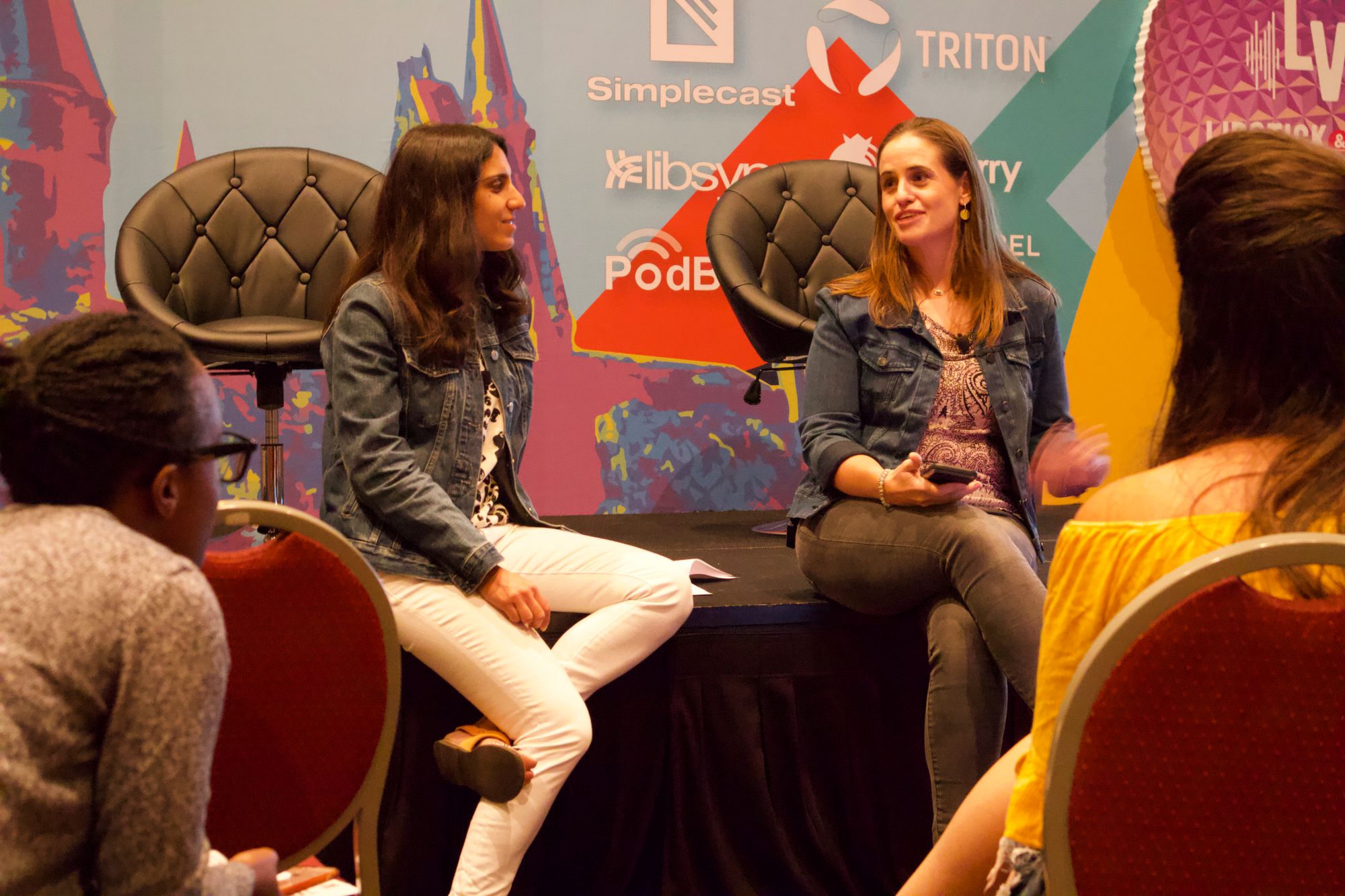Events
News
News & Events
Related articles:
Couldn’t make it down to Orlando for Podcast Movement 2019? That’s okay! We’re recapping some of the panels we attended. First up? Jeanine Percival Wright, Simplecast COO, and Amira Valliani, CEO of Glow.Fm on Navigating the Podcasting Wage Gap.
As a newer medium, podcasting has endless opportunities to be a more equitable place. But podcasting doesn’t exist in a bubble, which means it can also repeat the same mistakes of other mediums–including perpetuating wage and monetization gaps. This session will discuss how wage gaps in podcasting are happening, what other mediums & systems podcasting is replicating, and what we can do from inside and outside our own networks to mitigate it.
The podcasting industry doesn’t exactly want to talk about the wage gap
When we first started promoting this panel, the response wasn’t exactly encouraging. Facebook comments on our posts were full of comments like “Oh, this again?”; “No one is making any money, so how could there be a gap?”; “Some of the most popular podcasts are hosted by women” and “I don't think there is a pay gap, just different levels of motivation,” which is pretty par for the course when people talk about wage gaps in any industry. That doesn’t make it true, though–even the idea that no one makes money in podcasting (or that no one is on salary) so there can’t possibly be a wage gap is easily disprovable.
The wage gap looks different in podcasting.
Some of those responses may have been because of how the wage gap manifests in podcasting–the image that comes to mind when you think of a wage gap might be a man and a woman doing the same job, and the woman getting a lower salary for it. (Even before we talk about podcasting, that image needs to be complicated–after all, there’s as much of a wage gap between white men and white women as there is between a white woman and a Black woman.)
Podcast creators rely on a lot of different streams of income, so the wage gap can manifest as a male podcaster being offered a higher CPM for their ad-reads, or more white women collecting money from premium content creators than Latinx women. Or, for instance, of the people named in the 20 top podcasts on Patreon, 38 are men, and 9 are women
As Amira showed us, on Glow.fm, 1-5% of listeners convert to paid, meaning they start supporting the podcasters they’re listening to. There’s no significant difference in conversion rates by gender. However, of the accounts created on Glow, 63.5% identify as men, 29.7% identify as women, and 6.8% are unknown. The gap widens even more when it comes to actually launching their Glow accounts–aka when the time comes to ask for money. Of the accounts that do that, 93.8% identify as men, and just 6.3% identify as women. It’s hard to talk about a wage gap generally, but it gets harder when, because of systemic forces, women aren’t even getting to the point of asking for money! It leads to the question: what can we do to remove the barriers between marginalized people and funding?
Allies are important & knowledge is power
It was super encouraging to see white cis men in the room for this breakout. When Amira asked one of them why he was here, he mentioned that he was launching a network and knew he’d be hiring people, and wanted to work to make sure he could avoid perpetuating wage gaps. Several other people in the room discussed being more candid about their rates and monetization models.
After all, the people who can most help marginalized creators bridge the wage gaps are the ones who benefit the most from it. If you’re white, cis, male, or all three, you have the social capital to make change, and by being transparent with how you monetize, you’re not bringing the ladder up behind you. And, as the Amira and Jeanine addressed, if you don’t believe the wage gap is real, then you have nothing to lose by revealing your rates!
While we work towards structural change, take some tips from non-marginalized groups
Unfortunately, the wage gap is not something that can be completely tackled by individual efforts. Companies have to work together to first acknowledge the problem, and then take steps to fix it–Simplecast is proud to have signed on to the California Equal Pay Pledge.
In the meantime, however, it helps to take a page out of the dominant faces in podcasting’s books. As Jeanine and her research points out, in podcasts, when men ask for support, they more, and they ask differently–asks generally happen more than once, and aren’t couched in “value” terms, like “If you like what you’re hearing…” / “if you like me…” instead leaning on the effort involved in producing a podcast. Jeanine also found that women specifically tend to couch their asks at the end of their show, as listeners are tuning out.
Have more questions about the wage gap? Talk to us on Twitter!

